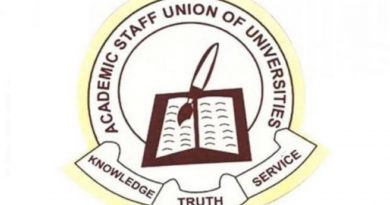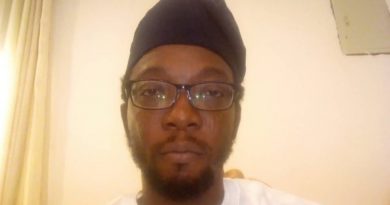Most agreements between ASUU and FG reached under duress – Perm Sec
Permanent Secretary, Federal Ministry of Education, Arc Sonny Echono, has insisted that only a sustainable funding model that allows universities to practise their professed autonomy will guarantee industrial peace and harmony in public universities in Nigeria.
He disclosed that most agreements reached between the Academic Staff Union of Universities (ASUU) and the Federal Government are signed under duress, usually to end the prevailing crisis, especially when students have been at home for several months coupled with the pressure from the public on the need to reach compromise for a particular strike to be called off.
He said this accounted for why successive administrations in the country had not been able to implement most aspects of such agreements into what the Union wanted years after they were signed.
He spoke in Abuja during a retreat organised by the governing council of the University of Abuja, for principal officers, deans, directors and university-based unions.
The leadership of ASUU is currently warming up for another round of strike action over what the national president of the Union, Professor Osodeke described as “government’s unfaithfulness in implementation of the Memorandum of Action (MoA) signed with our Union, upon which the last strike action was suspended.”
According to him, the Union patriotically suspended the nine-month strike action occasioned by “the failure of the Federal Government to implement the 2009 Agreement and several memoranda of Understanding (MoU) and MoA it entered with ASUU.”
The Permanent Secretary, however, said: “I have heard so much about the fact that the government has failed to honour the agreements it made with the ASUU. I have a different view about that because most of these agreements are imperfect.
“If somebody comes to my house and puts a gun to my head, I might agree to everything because those agreements are signed under duress.
“If you want to introduce obligations or responsibilities on their part, they will insist you cannot,” he said.
He maintained that Nigerian universities are faced with contemporary challenges, including issues of sustainable funding, autonomy, industrial harmony and institutional compliance with statutory regulations as well as enhanced governance and administration.
He added that in order to address and mitigate those challenges, the universities would need to remain proactive and continuously come up with appropriate responses particularly in this knowledge-driven era.
According to him, a veritable tool in this regard is regular interface among members of the Council and principal officers of universities as well as other stakeholders involved in the management of universities as it was observable at the retreat.
Echono commended the ninth Governing Council of University of Abuja, for blazing the trail in bringing together all critical stakeholders for the mutually beneficial meeting.
On sustainable funding, the Permanent Secretary advocated a Grant-Budgeting System that emphasises a bottom-up approach, where for instance, the actual cost of training a student is determined and funded.
According to him, the fundamental thing was for the government to adopt the grant system in budgeting and give universities what they want. Once that is done, the universities would be run within the concept of autonomy or the strength of their balance sheet.
“I personally would have preferred that we return to the old tradition of bottom-up budgeting from the units and departments, based on the actual needs while the funding should be such that is determined by cost which someone has to pay for.
“We need to go back to a system where you determine what it takes in a year to train a student in a particular course and what it takes to produce a student in a course for the duration of that programme and every stakeholder should partake in this.
The Permanent Secretary, frowned at the disruption of the academic calendar as a result of strike actions by universities staff unions, saying “this is beginning to affect the perception of parents with many of them deciding to send their children to private universities as well as other countries because they are not sure of when their children will graduate from the Nigerian public tertiary institutions.”
He said this disruption of the academic calendar is a major factor among others for the low ranking of Nigerian Universities by the global ranking institutions.
For Advert Placement, Sponsorship, support, Article submission, suggestion, etc, Contact us: info@theabusites.com, +2349015751816 (WhatsApp)






